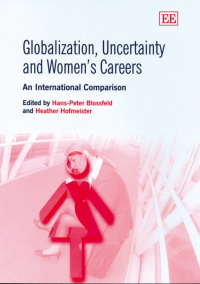The Intergenerational Transmission of Gender: Paternal Influences on Children's Gender Attitudes (scientific article)
Background Recent research suggests that, in post-industrial societies, paternal involvement in family life is increasing. Although previous studies of paternal involvement have considered paternal influences on children's cognitive or socio-emotional development, such studies have not yet addressed paternal influences on children's attitudes toward gender. Relatedly, previous studies on the intergenerational transmission of gender attitudes have analyzed maternal influences, but have neglected the significance of paternal influences. This study engages both strands of the research by analyzing the effects of paternal behaviors on children's attitudes toward gender roles.
Method Multivariate linear regressions models were estimated on data from the Longitudinal Study of Australian Children (LSAC); a survey with biannual observations over 10 years for 2796 children born between 1999 and 2000.
Results Fathers' time spent on childcare during childhood was associated with gender-egalitarian attitudes in children by the age of 14 or 15. The most powerful predictor of children's gender-role attitudes, however, was the amount of time fathers spent on housework during children's adolescence, both absolute and relative to the amount of time mothers spent on housework. Fathers' unpaid labor at home was as relevant for children's gender-role attitudes as mothers' paid labor in the workforce. These results held after controlling for maternal domestic behaviors and for the gender-role attitudes of both parents.
Conclusion Father involvement in childcare and housework during childhood and adolescence play an important role in shaping children's gender-egalitarian attitudes.
The Gender Order in Action: Consistent Evidence from Two Distinct Workplace Settings (scientific article)
In this article, we elaborate an integrative framework of the gender order that considers gender as something simultaneously structurally outside of individual action and as constantly done through interaction. Combining a structural perspective with micro-interactionist accounts makes it possible to show how these mechanisms manifest themselves and how individuals engage with and concretely 'do gender' in situ. We focus on three mechanisms through which the gender order emphasizes difference and creates inequality: androcentrism, agentic masculinity, and female devaluation. We illustrate our elaboration of the gender order with empirical evidence from two dramatically different male-dominated employment settings, meat-processing and higher education, in Switzerland and Germany, respectively.
The Life Course: An Interdisciplinary Framework for Broadening the Scope of Research on Crowdwork (scientific article)
Work through a Gender Lens: More Work and More Sources of Meaningfulness (Book chapter)
'Und Mails Ganz Spät Abends!' Führungsfrauen Berichten, Wie Ihre Männlichen Kollegen Mit Zeit Und Technik Umgehen: Ausdruck Der Hegemonialen Männlichkeit? (Book chapter)
Gender and Work Using Figuration Theory: A Narrative Exercise to Unpack Gender Inequalities and Conceptions of “Work" (Book chapter)
Gender and Science: A Trial of Suspects Guilty for Causing Women's Underrepresentation in Science Careers (Book chapter)
Book: Globalization, Uncertainty and Women's Careers: An International Comparison (Book)

The book represents the first-ever longitudinal analysis of micro-level data from these OECD countries focusing exclusively on women's relationship to the labor market in a globalizing world. The contributors thoroughly examine women's employment entries, exits and job mobility and present evidence of women's increased labor market attachment and reduced employment quality in most of the countries studied. They also systematically consider the life course changes influenced by larger transformations in society and, in doing so, explicitly link the phenomena of globalization to individual women's lives in Europe and North America.
Highlighting the consequences of specific national policies on women's lives, women's labor market participation, and demographic phenomena such as low fertility, this book will prove invaluable to academics, students, researchers, practitioners and policymakers seeking to understand the effects of international social change on national contexts and individual lives.
- Studying at Goethe University
- International applicants
- Faculties
- Overview of study programmes
- Programme for refugees
- GRADE
- Goethe Business School (continuing education)
- Research at Goethe University
- Scientific news
- Goethe Welcome Center (for international researchers)
- Collaborative research projects
- Individual research
- Visiting fellowships
- Endowed chairs
- About the University
- News-in-brief
- University administration
- Campus locations
- Campus life
- University archives (German)
- Rhine-Main-Universities





